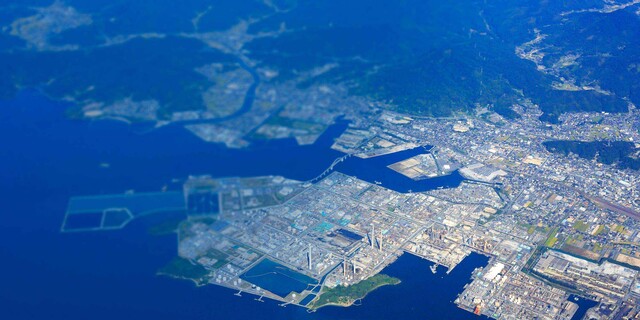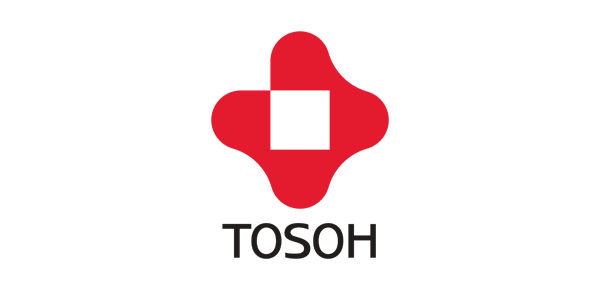Tosoh Europe achieves peace of mind for export controls
Tosoh Europe meets complex requirements in a highly regulated environment and achieves full compliance with SAP®-integrated solutions from AEB.
Challenge
"Compliance is a top priority at Tosoh. This creates a strong need for transparency and visibility. Our goal is efficiency and full compliance."
Lars J.T. Droog, Manager of Supply Chain & General Affairs, Tosoh Europe B.V.
Supply chains in the chemical industry are highly complex. Strict quality and safety standards apply and compliance with an abundance of laws is key. For Tosoh Europe, the European subsidiary of the Tosoh Group, complexity is amplified by its multifaceted global supply and distribution network and its diverse portfolio including everything from basic and specialty chemicals to diagnostic systems, and materials for the semiconductor industry.
Many products are sourced from plants outside the EU and distributed to customers across Europe, Africa, and the Middle East. Some deliveries are shipped directly from manufacturing sites and others are held temporarily in the company’s EPC in the Netherlands or other regional warehouses across EMEA. Due to its outsourcing strategy, Tosoh Europe’s core team is relatively small and has limited resources for managing trade compliance.
To meet both regulatory and corporate requirements, Tosoh Europe needs to go far beyond screening against EU and US sanctions lists: Japanese sanctions must be complied with, too, and based on its diverse portfolio, EU and US export control laws also apply. Chemicals with US-origin are additionally subject to US re-export law.
These multi-layered obligations, combined with the need for seamless integration into their SAP® system, posed a critical challenge for the company. The need for a highly automated export control solution became apparent to achieve full compliance while maintaining operational efficiency.
Following a thorough selection process, Tosoh Europe chose AEB as trade compliance solutions partner. They implemented AEB’s powerful cloud solutions for business partner screening and export controls checks.
Both solutions are integrated directly into Tosoh’s SAP® system through standard add-ons, allowing users to continue working in their usual ERP environment without switching between systems. Saving or modifying an order in SAP® triggers the automated control process. Sanctions lists screening and export control checks take place in the background of business transactions without interrupting day-to-day operations.
AEB’s data service ensures that the required screening content – EU, US, and Japanese sanctions lists as well as the EU and US export (and re-export) control legislation – is always up to date. Tosoh now screens its entire customer master data on a regular basis. In addition, every order and every shipment is routinely screened – whether shipped directly from overseas and European production sites or via their Netherlands EPC and EMEA warehouses.
If a match occurs (i.e. a critical business partner or export transaction is identified), responsible parties are notified by email. The critical transaction remains locked until verified and approved by authorized staff.
Result
The adoption of AEB’s SAP®-integrated Compliance Screening and Export Controls solutions significantly enhanced and streamlined Tosoh Europe’s trade compliance processes. Compliance checks are now fully automated, freeing up staff to focus on their core tasks.
All business partner screening and export control checks are meticulously logged, and full audit trails are always ready at hand. The central compliance monitor provides real-time transparency on all transactions from order to delivery.
The two-month project implementation phase was highly efficient and included deployment of the solution, training of the personnel, extensive testing, and proactive clean-up of customer master data before going live. Screening the entire customer master data against sanctions lists ahead of the actual go-live delivered great benefits to Tosoh – enabling thorough data preparation including set-up of a “good guy list” and clearing “false positives” outside the pressures of day-to-day operations.
With AEB’s solutions in place, Tosoh Europe achieved its goal of full compliance – meeting regulatory requirements and corporate standards alike and securing peace of mind in today’s highly dynamic sanctions and export controls environment.
"It’s very important to us that nothing compromises the efficiency of our processes. We are very pleased with the solution, but also with the support that AEB provided during and after the project phase. We have complete visibility of all business transactions subject to screening and export controls and can document this in the system."
Lars J.T. Droog, Manager of Supply Chain & General Affairs, Tosoh Europe B.V.
Achieve peace of mind for trade compliance
About Tosoh Europe
Tosoh Europe B.V. is the European subsidiary of the Tosoh Group, a global leader in chemical and specialty materials. The company supplies a diverse range of products, including petrochemicals, advanced materials for semiconductors, and innovative bioscience systems. As one of Asia’s largest chlor-alkali manufacturers, Tosoh is committed to sustainability and providing reliable, high-quality solutions that enhance modern life and ensure a sustainable future.



